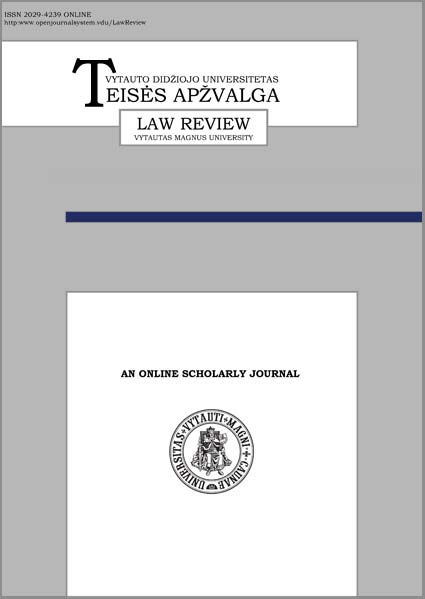Piktnaudžiavimas mokesčių teisėje, kurio pagrindu prarandama teisė į PVM atskaitą
Understanding the Carousel Tax Scheme in the EU and Lithuania Jurisprudence
Author(s): Paulius Cerka, Jurgita GrigienėSubject(s): Law, Constitution, Jurisprudence
Published by: Vytauto Didžiojo Universitetas
Keywords: Carousel tax scheme; Taxation; Abusive practices; Tax obligation;
Summary/Abstract: Value added tax is one of the most important sources of all EU member states government revenue, but the its role in Lithuania is even greater. Therefore evasion schemes is real threat to state budget and provision of public services. Therefore the regulation of VAT deduction system is very sensitive. But too strict regulation on abuse of VAT tax may hinder honest tax payers and eventually bring greater loss to economics, since tax payers must enjoy a degree of legal certainty, especially in the case of tax consequences. Deduction system in VAT tax is meant to relieve the trader entirely of the burden of the VAT payable or paid in the course of all his economic activities, since this is meant to ensure complete neutrality of taxation of all economic activities. Though it is clear that principle of prohibiting abusive practices also applies to the sphere of VAT. Since different forms of escaping tax obligations result in tax fraud, evasion or avoidance, fight against these abuses is a mix of national and EU actions. Courts held view that principle of abuse of rights is a general principle of Community law and prevents a taxable person from deducting VAT, where it is apparent from the application for deduction that the objectives of VAT, are not being attained and that the taxable person is artificially creating conditions to justify the application for deduction. But the most problematic issue is to qualify specific situation as abuse of rights. Some tax evasion schemes are clearly recognized as illegal in ECJ decisions and jurisprudence. But still some qualification of situations where VAT is unpaid because of insolvency caused by natural economic factors and not by intentional human will is still unclear. In article it is presented Lithuanian administrative court position that when person deals with partially insolvent partner and may foresee that he would not be able in full to pay his VAT duties, it is held that such transactions are abuse of right denying the right to deduct. Author does not agree with this view, bringing arguments and contesting that the criteria of abuse should be intention of transaction and reality of business operation, but not the knowledge of solvency of business partner in itself. There is not exactly case solved by ECJ regarding this matter, though in general court considers abuse of right only there where tax payer acted not in bona fide transactions-i.e. such transactions which are designed fundamentally to obtain a tax advantage and are of purely artificial nature.
Journal: Teisės apžvalga
- Issue Year: 2017
- Issue No: 2(16)
- Page Range: 100-112
- Page Count: 13
- Language: Lithuanian

